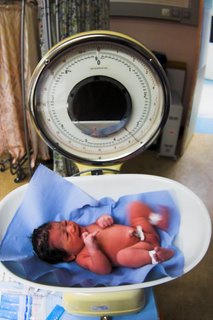
The above is a photograph of some Autumn leaves in front of a pathway leading through a graveyard to a church. Let me emphasise that as a fundamental if somewhat self-evident starting point. Well, it was self-evident to me when I snapped the shot and has been self-evident ever since.
If I might subsequently indulge you in what may appear to be an unrelated anecdote, I recently came across the following plea for help in an online photographic forum:
I'm now dealing with 8MP and I have realised I'm obsessed with sharpness. Im' actually looking at 1:1 crops of images on the web taken with a 500mm L series prime lens and saying "well it's not totally sharp" ... as if somehow that's actually so important it will stop me getting a good image if by some amazing fluke I could actually afford a £5000 lens! It's a bloody nightmare!On one level this merely struck me as a succinct example of what I've encountered more times than I care to count.
Have you ever found yourself frustrated by the notion that the photographs you take would be better if only you had access to some better kit, in particular a better lens? Have you ever felt yourself distinctly agitated, locked in internal battle with your conscience, fighting the growing urge to purchase a new lens (or indeed some other item of photographic gear)? Have you found yourself in this position knowing in your heart of hearts that it isn't critical to the successful and enjoyable pursuit of your pastime? Having seemingly despatched this urge have you found yourself overcome as it rushes you from the side and holds you in a soft reassuringly warm and fuzzy stranglehold over your computer keyboard obliging you to submit your credit card details? Have you taken receipt of a lens (or other such item) through the post and quickly hidden it from a partner then subsequently produced it from your camera bag in a nonchalant manner as though you've had posession of it for an age? Have you lied when asked how much it cost?
The bad news is, you are ill. The good news is, you can recover. The first step on the path to recovery is to admit to yourself that you are ill.
The seemingly inconsequential yet somewhat intriguing news is that you are male, in all likelihood. Why do cartoons seem to portray women and only women in the guise of pathologically compulsive consumers?
It is also very likely that you are a member of at least one online photographic forum.
Engaging in such online fora is often akin to popping in to one's local hostelry for a relaxing draught of ale and some friendly banter only to have a series of primary alcoholics pressing their faces into your direct field of vision (and scent) and rambling on about how great it is to get drunk on this stuff. Really drunk. Really downright rollicking drunk and bawdy.
Furthermore, if you yourself are prone to alcoholism albeit perhaps in its secondary form, what are you doing in the first instance entering such a place and imbibing of essentially what is a drug you are suffering a burgeoning addiction for?
Additionally beware the fact that online fora have amongst their ranks the employees and agents of camera equipment manufacturers. They are easy to spot. They are the ones that post in the guise of enthusiast and consistently promote the virtues of top quality glass. If they are enjoying their glass so much why are they not out using it and how come they seem to post a great deal more in the way of words promoting such kit than posting images that they supposedly captured with it, and when indeed they do post images, is the content any more interesting than that posted by others with glass of purportedly lesser quality? In fact, what are you looking at when you scrutinise sample images from a lens? Really, break it down. What is it exactly you are looking at? Is this what photography is about?
Those that are not employees and agents of camera equipment manufacturers (the dealers, peddling their wares to innocent kids at the photography school gates) are merely ill (the addicts). Sorely ill. The best you can do is to tell them they are ill and hope that they accept this diagnosis as the first step on the path to their recoveries. Reassure them that you also were once ill, and as have you, they too can recover.
Three step plan to combat lens lust:
- Stop scrutinising the fringes of your photographs and stick to looking at what the photographs are of.
- Either avoid online photographic fora or if you can't bring yourself to do so, use them to discuss the content of images, not edge definition, and when tempted by Satan's accolytes into engaging in such discussion, help them to see the error of their ways.
- Buy a really cheap camera with an objectively appaling lens and set yourself the task of taking some really memorable photographs with it.
On this latter note I always find that a great antidote to pathological lens lust is to buy (and use) a Holga and contemplate, amongst others, the award winning press photography of David Burnett.
As the adage unfurls, if you need to ask how much a Holga costs, you probably don't have any loose change in your pocket.


